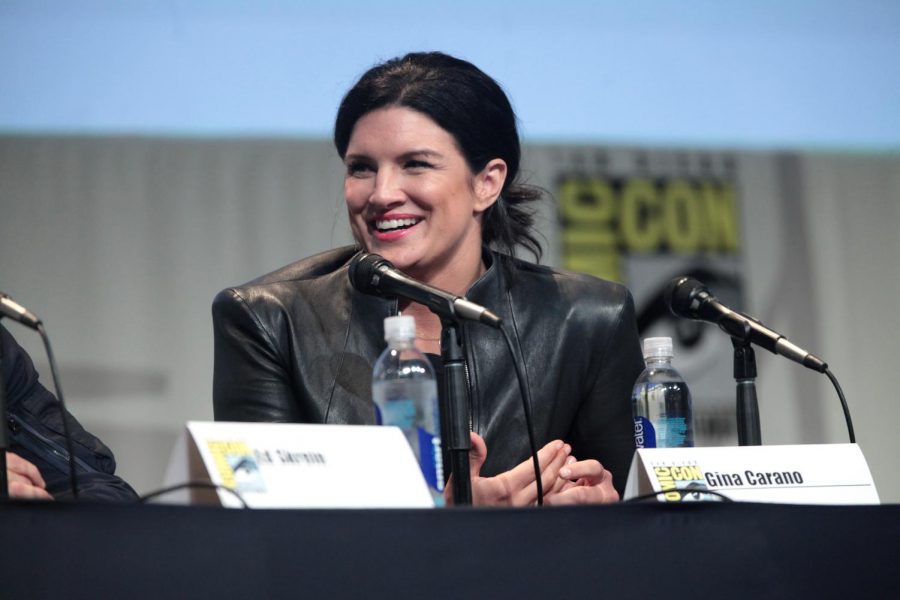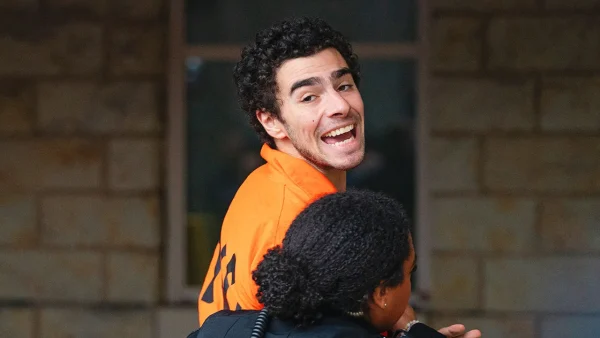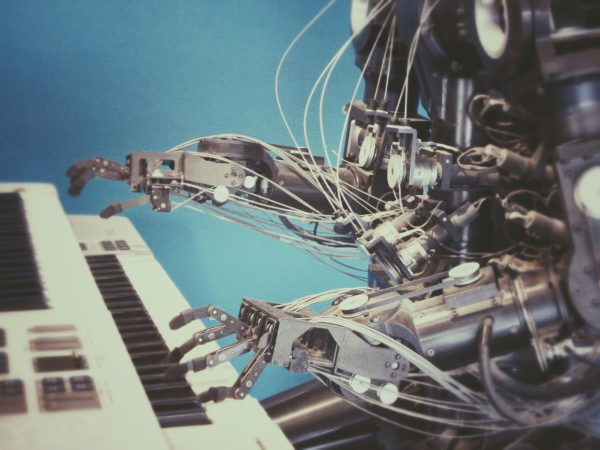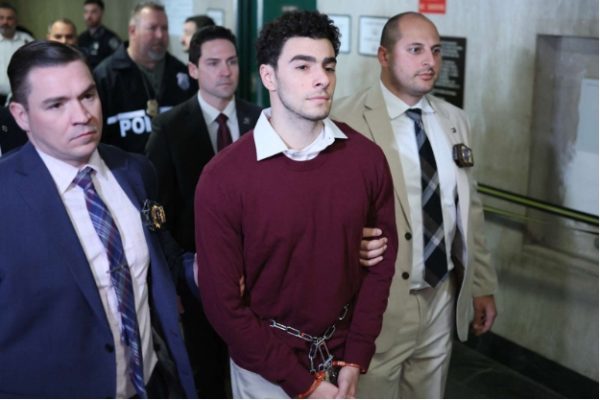Bring Gina Carano Back
Should companies fire employees for expressing controversial views in public?
A photo of Gina Carano at Comic con in 2015.
In November of 2019, Disney dropped The Mandalorian on its new streaming service Disney+. Immediately, fans fell in love with the show, and its many characters. On December 18th, Disney finished releasing the second season of the show which was also met with much love. With season three confirmed, fans are waiting excitedly to reconnect with beloved characters, like Grogu (otherwise known as “Baby Yoda”), Cara Dune and Moff Gideon. However, after recent controversy, it looks like one member won’t be returning to the cast.
On February 10th of this year, Gina Carano was fired from her role as Cara Dune in The Mandalorian. After a series of controversial tweets and much pressure from angered twitter users, a widely distributed statement from Disney’s subcompany, Lucasfilm, announced that Carano “is not currently employed by Lucasfilm and there are no plans for her to be in the future.”
In essence, Carano has been blacklisted by Disney, one of the biggest entertainment companies in the world, virtually ending her career in the acting world. When Lucasfilm was questioned about their motives for this move, they quoted Carano’s social media posts “denigrating people based on their cultural and religious identities,” calling them both “abhorrent and unacceptable.” However, after reading Carano’s posts, Lucasfilm’s classification seems inaccurate, and firing her starts to look like a big mistake.
Easily Carano’s most contentious post is one where she compared the treatment of Jews in Nazi Germany to that of conservatives in today’s America.
She said “Jews were beaten in the streets, not by Nazi soldiers but by their neighbors…even by children. Because history is edited, most people today don’t realize that to get to the point where Nazi soldiers could easily round up thousands of Jews, the government first made their own neighbors hate them simply for being Jews. How is that any different from hating someone for their political views?”
While this sentiment is quite offensive as it minimizes the trauma faced by Jews during the Holocaust, the question remains: is Carano denigrating Jewish people based on their religious identity?
After reading the post first hand, it is clear she isn’t. Carano obviously views the oppression of conservative views within the media as one of today’s pressing issues. While whether or not this type of censorship is actually an issue is debatable, this disagreement does not mean that Carano is not allowed to hold this view. In her post, she expresses how strongly she feels about this issue by comparing it to the Holocaust, one of the worst genocides in history. While such an action is a blatantly inappropriate exaggeration, it is clear she did not choose this event in order to belittle the struggles felt by Jews. Instead, she meant to highlight the pain felt by conservatives, a pain she likely feels in her day to day life.
In Carano’s eyes, such a statement was not hyperbole, as she sees comparisons between the start of the Holocaust and the state of partisanship in America today. While this circumstance in no way makes the statement okay, it does clarify that Carano did not aim to be anti-semetic. To her, the comparison was both appropriate and relevant. To others, it came off as distasteful, disrespectful and disgusting.
To fault Carano for not knowing what was appropriate is unfair, and counterproductive, as she is an actor, not a professor. Instead, having a conversation with her about why the post was inappropriate would have given her the chance to learn from her mistakes, and prevented her from making another post like this one.
Some may argue that Carano would not have been receptive to such a conversation, but her past actions say otherwise. For example, let’s examine her response to an earlier insensitive tweet: Carano used the term “beep/bop/boop” in her Twitter bio when she was asked to include her pronouns as a show of support for Trans people.
In a tweet she explained that “They’re [social media users] mad cuz I won’t put pronouns in my bio to show my support for trans lives. After months of harassing me in every way. I decided to put 3 VERY controversial words in my bio.. beep/bop/boop. I’m not against trans lives at all. They need to find less abusive representation.”
She elaborates on the treatment she received over this issue in another tweet, saying “I don’t think trans people would like all of you trying to force a woman to put something in her bio through harassment & name calling EVERYDAY for MONTHS. Such as “Racist’ ‘Transphobe’ ‘B****’ ‘Weirdo’ ‘I hope you die’ ‘I hope you lose your career’ ‘your fat, you’re ugly.’”
Initially, these tweets do read as quite inconsiderate. Although Carano justifies her choice of pronouns as a reply to harassment and verbal abuse, her decision still makes light of the countless struggles faced by Trans people everyday, struggles that are far worse than a little internet bullying. Carano’s failure to consider this point of view reflects how truly disconnected and unaware she is of the plight that trans people face, reflecting the ignorance and a lack of compassion she possessed at the time.
However, after having a discussion with her costar, whose sister recently came out as a trans woman, Carano removed the phrase from her bio and, in a tweet, clarified that “Beep/bop/boop has zero to do with mocking trans people [and 100%] to do with exposing the bullying mentality of the mob that has taken over the voices of many genuine causes.”
While this fix is far from the demonstration of support that putting her actual pronouns in her bio would be, perhaps it is one better. In this situation, Carano demonstrated that she had an open mind, and that she was willing to listen to the experiences of others and shift her beliefs based on that.
Carano’s initial choice of pronouns read as an attack on the cultural identity of trans people, but her choice to fix it spoke to the potential for people to learn from their mistakes. At the end of the day, Carano is human, like the rest of us. Had she made a total 180 and put her pronouns in her bio, it would have been obvious she was simply doing it as a means of getting Twitter users off her back.
While her hesitance to completely commit may demonstrate a continued strife with trans rights, it demonstrates that she is thinking about the issue, rather than simply agreeing with whatever the majority believes. When she would have finally become comfortable with putting pronouns in her bio, it would have been from genuine care, rather than fear of ostracization.
However, she may never come to that point. In a tweet posted early November, Carano tells her followers, “You can join me over @parler_app. I go by GinaJoyCarano.” For those who don’t know, Parler is a right-wing social media app that has no fact checkers, and is infamously known as the site by which large parts of the January 6th Insurrection was planned.
While Carano advertising this app did not denigrate any religions or cultures, it was a step towards right-wing extremism. The same extremism populated by the Proud Boys, Qanon and other worrisome organizations. While it is easy to criticize Carano for taking this step, first we must consider how she got there.
Carano had obviously been receiving a lot of backlash via Twitter, Instagram and other social media platforms. She fought back, saying “I don’t like bullying, and if I don’t stay present, which I don’t even necessarily want to stay present that often, I want to make art, art is my passion, but if I don’t stay present then other people win.”
Some may argue that Carano deserved this bullying, and that she needed to be put in her place so she can learn what is appropriate, but is that really what we preach as a society? That through vitriol and bitter words, we can spark change?
Every teacher knows that the best way to make a student hate a class is to bully them for what they do not know or do not understand. So many students are unsuccessful in classes simply because they feel their teacher has no respect for them. Gina Carano experienced much bullying for what she did not know and did not understand, so why would she stick around when she felt disrespected? Why wouldn’t she go to a platform where people won’t bully her for what she believes? Wouldn’t you drop out of that math class if all your teacher ever did was tell you how stupid and useless you were for not seeing what she saw in the problem?
The firing of Gina Carano demonstrates the dangerous direction our society is heading towards. As big companies become so caught up in avoiding the consequences of “cancel culture”, they will continue to fire figures that may be even the slightest bit controversial. Moderate conservatives will be pushed to the more extremist side of the movement, and resentment will build on both sides. The country will be divided further along the line of liberal and conservative, moving closer and closer to irredeemable.
But, we can avoid this. While outspoken and at times inconsiderate, I believe that Gina Carano did not speak from a place of hate. Her tweets simply reflected her feelings, and upon learning about the feelings of others, she was willing to change her point of view. She did what so many struggle to do today, and was able to empathize with those across the political spectrum. So Disney must bring Gina Carano back because although the decision might have saved them the headache of dealing with future controversies, it was ultimately a step in the wrong direction.

Hey Everyone! My name is Naomi Mandar. I am a Junior at PHS, and this is my first year writing on the Chieftain team. As a person who is almost always...







